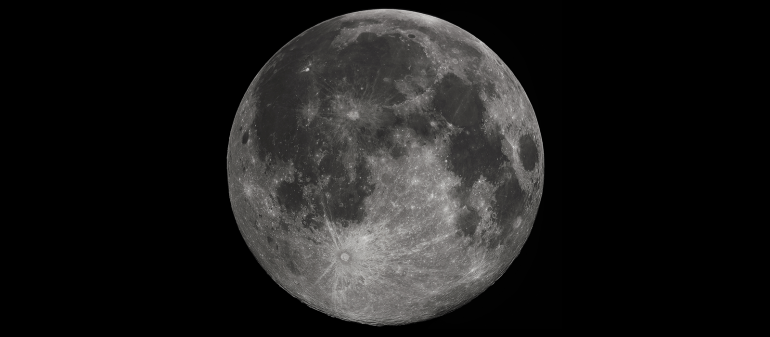Listeners:
Top listeners:
-
 play_arrow
play_arrow
Rother Radio (128K) Love Local, Love Music!
-
 play_arrow
play_arrow
Rother Radio (64K) Love Local, Love Music!
-
 play_arrow
play_arrow
Rother Radio (South Yorkshire) (64K) Love Local, Love Music!
-
 play_arrow
play_arrow
Rother Radio (South Yorkshire) (128K) Love Local, Love Music!
-
 play_arrow
play_arrow
Rother Radio (Doncaster) (64K) Love Local, Love Music!
-
 play_arrow
play_arrow
Rother Radio (Doncaster) (128K) Love Local, Love Music!
-
 play_arrow
play_arrow
Rother Radio Xmas Love Local, Love Music!
-
 play_arrow
play_arrow
Rother Radio – Special Announcement Love Local, Love Music!
Facial recognition technology not about ‘total surveillance society’ – minister
today13/08/2025

Rolling out more facial recognition vans is not intended to create a “total surveillance society”, the policing minister has said.
Dame Diana Johnson said she believes the public would back the police’s use of live facial recognition cameras, if they are used “in a very measured, proportionate way to go after” suspects who officers are looking for.
But Labour peer Baroness Shami Chakrabarti alleged that the technology had been “developed pretty much completely outside the law”, and voiced fears that the Government’s plan is “yet another move towards a total surveillance society”.
Dame Diana denied Lady Chakrabarti’s claim.
Asked whether the rollout was the “thin end of the wedge”, the Home Office minister told BBC Breakfast: “With the greatest of respect, that’s not what this is about.
“This is about giving the tools to our police officers to enable them to keep us safe.
“And the live facial recognition results in London, where it’s been used, in the past 12 months, over 580 arrests were made, and these included people who were wanted for rape, for GBH (grievous bodily harm), for robbery, for domestic abuse, and also for sex offenders who were breaching their conditions of being out in the community.
“So I think this is a really powerful tool for policing.
“And it’s actually a tool, it’s not an automated decision maker.
“So, the police officer has to look at what’s being put up on the screen and decide what to do next, so there’s that human involvement, but it is a really powerful tool, which I think the public would actually be supportive of being used in a very measured, proportionate way to go after those individuals that the police are looking for for these serious offences.”
Dame Diana said she had seen the technology in action in Croydon, London, where the Metropolitan Police had put together a watchlist of wanted individuals, and the list was deleted after the exercise.
“So it was very tailored,” Dame Diana said.
She added: “There are laws about how this has to be done in terms of human rights, equalities law, data protection laws.
“I think one of the concerns people, perhaps rightly, have is the need to consolidate that into one piece of legislation or one law, and that’s something we’re going to consult on later in the year, about how live facial recognition technology should be used and the oversight of it to make it as transparent as possible for the public to really feel this is something that the police are using properly.”
Dame Diana had earlier told Times Radio: “There is quite a lot of misinformation out there about what this actually does and how it’s used.”
She said: “And I know in the past, there’ve been concerns about bias, particularly around certain ethnic groups or genders or age.
“And the way that this is now structured, the algorithms that are being used have been independently tested, so I’m confident that the live facial recognition that we’re rolling out today actually is within the law and does not have the bias that has happened previously.”
According to the Home Office, the technology will be used to track down high-harm offenders.
Seven English forces will have access to 10 vans equipped with cameras, across Greater Manchester, West Yorkshire, Bedfordshire, Surrey, Sussex, Thames Valley and Hampshire, following on from recent deployments by London’s Met Police and South Wales Police.
Chief Superintendent Tim Morgan of South Wales Police said the technology had “never resulted in a wrongful arrest in South Wales, and there have been no false alerts for several years as the technology and our understanding has evolved”.
But human rights campaigners have “concerns” about “this incredibly intrusive technology”, Lady Chakrabarti, a former director of the civil liberties advocacy group Liberty, told BBC Radio 4’s Today programme.
The former shadow attorney general said: “Some would say this is yet another move towards a total surveillance society – challenges to privacy, challenges to freedom of assembly and association, and problems with race and sex discrimination because of the higher likelihood of false matches in the context of certain groups.”
She said that “the public generally understand that police powers are governed by statute, so there’s a public conversation, there are parliamentary debates and votes”, but warned there was no law specifically covering live facial recognition to gather evidence.
“It’s particularly odd that this has all been developed pretty much completely outside the law,” she said.
Lady Chakrabarti said she “welcomed” plans to consult ahead of possible new legislation, but warned that to date, “it’s been a bit of a Wild West – the police procuring technology from whichever companies they see fit, the police drawing up watchlists of who they’re looking for and what level, what severity of crime should be sufficient for deployment, and pretty much marking their own homework”.
Published: by Radio NewsHub
Written by: Radio News Hub
Similar posts
Now Playing
Now playing: -
On Air Now

Through The Night
The Best Variety of Hits Through the Night!
Staying up late or can't sleep? Rother Radio plays the best variety of music to see you through the night!
closeSponsored
Weather
Upcoming Local Event
Latest from Facebook
Search Rother Radio
Contact Us
- https://www.rotherradio.co.uk
- 01709 257 175
- studio@rotherradio.co.uk
About Us
Rother Radio – Love Local, Love Music! → Discover more
Our Partners
Rother Radio is owned by Rotherham Broadcasting CIC






